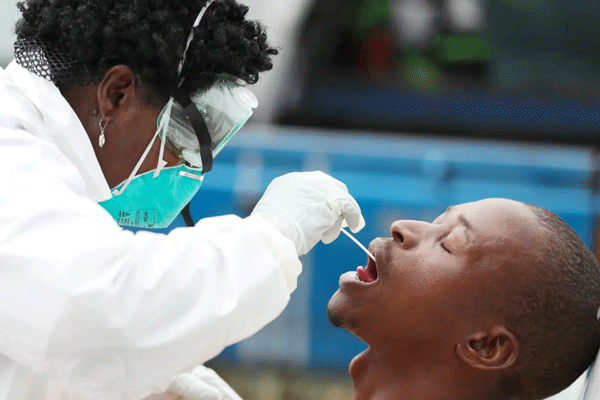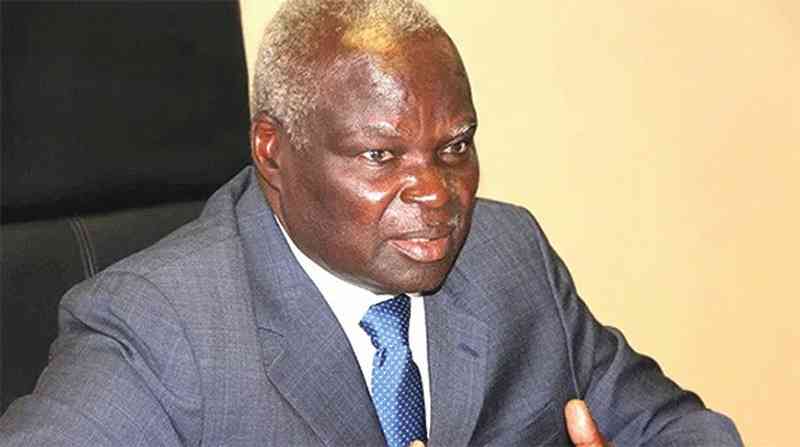
THE issue of Covid-19 treatment drugs has lately hogged the limelight after some medical practitioners raised the red flag over treatment claims by their colleague, Jackie Stone, describing her assertions as “worrying prescription of orthodox Covid-19 therapeutics”. Some of them even called for her arrest and a review of her practicing certificate after she declared she had prescribed Ivermectin, Nano Silver and Doxycycline as treatment for Covid-19. However, in a surprise move, the government last week approved the mass importation and dispensing of Ivermectin. This followed an application by other medical practitioners seeking to be allowed to use the drug to cure Covid-19. The Standard Reporter Richard Muponde (RM) had a wide-ranging interview with Stone (JS) over the controversy and other issues. Below are excerpts from the interview.
RM: There has been serious debate over the use of Ivermectin to treat Covid-19. What is Ivermectin?
JS: Originally introduced as a veterinary drug, it kills a wide range of internal and external parasites in commercial livestock and companion animals. It was quickly discovered to be ideal in combating two of the world’s most devastating and disfiguring diseases which have plagued the world’s poor throughout the tropics for centuries. It is now being used free-of-charge as the sole tool in campaigns to eliminate both diseases globally. Discovered in the late-1970s, the pioneering drug Ivermectin, a dihydro derivative of ivermectin — originating solely from a single microorganism isolated at the Kitasato Institute, Tokyo, Japan, from Japanese soil — has had an immeasurably beneficial impact in improving the lives and welfare of billions of people throughout the world.
RM: Is the drug an animal drug, perhaps unfit for use on humans?
JS: It has also been used to successfully overcome several other human diseases and new uses for it are continually being found which has led many to describe it as a “wonder drug”. There are few drugs that can seriously lay claim to the title of “wonder drug”, penicillin and aspirin being two that have perhaps had the greatest beneficial impact on the health and well-being of mankind. But ivermectin can also be considered alongside those worthy contenders, based on its versatility, safety and the beneficial impact that it has had, and continues to have, worldwide — especially on hundreds of millions of the world’s poorest people. Ivermectin proved to be even more of a “wonder drug” in human health, improving the nutrition, general health and well-being of billions of people worldwide ever since it was first used to treat onchocerciasis in humans in 1988. It proved ideal in many ways, being highly effective and broad-spectrum, safe, well-tolerated and could be easily administered.
RM: What was the reason for it to be given a Nobel Prize?
JS: It was because diseases caused by parasites had plagued humankind for millennia and constituted a major global health problem. In particular, parasitic diseases affected the world’s poorest populations and represented a huge barrier to improving human health and well-being. The development of ivermectin therapies revolutionised the treatment of some of the most devastating parasitic diseases. William C Campbell and Satoshi Ōmura discovered a new drug, Ivermectin, the derivatives of which have radically lowered the incidence of river blindness and lymphatic filariasis, as well as showing efficacy against an expanding number of other parasitic diseases. The discovery provided humankind with powerful new means to combat these debilitating diseases that affect hundreds of millions of people annually. The consequences in terms of improved human health and reduced suffering are immeasurable.
RM: Which other diseases does it treat?
- Chamisa under fire over US$120K donation
- Mavhunga puts DeMbare into Chibuku quarterfinals
- Pension funds bet on Cabora Bassa oilfields
- Councils defy govt fire tender directive
Keep Reading
JS: Ivermectin treats things that no other drugs do — elephantiasis, river blindness, Norwegian scabies and now almost certainly, coronavirus. The fact that it also takes out worms in animals is simply an added bonus. In 2012, the antiviral effects were discovered. It also has efficacy against HIV.
RM: Why do you think its efficacy is high?
JS: According to research on the drug, the chances of Ivermectin being ineffective are between one in 67 million, to one in a billion; with the new data coming out. I suspect those who will profit from vaccines do not want a safe, affordable, effective alternative. Ivermectin is highly effective as a prophylactic drug for Covid-19. There is documented research producing evidence of a close to zero rate of transmission in old age homes and also very low transmission rates amongst families prophylactically taking the drug whilst caring for family members who were Covid-19 positive.
In the final phase of the disease, the use of Ivermectin can reduce mortality rates by as much as 30%. Being a potent anti-inflammatory, it settles down the inflammatory process that causes prolonged symptoms in long haulers. If made widely available for treatment and prophylaxis, Ivermectin has a significant effect on new infection rates and mortality. This could restore pre-Covid infection rates within a few weeks, thus controlling the feared second and third waves of the pandemic.
In summary, Ivermectin is the most significant, safe and cost-effective drug for treatment in all phases of Covid-19 infections. Until such time as herd immunity is achieved and vaccines are widely available, it is the best, immediate option for keeping the pandemic under control in Africa.
RM: Who originated the idea of prescribing it in the country in the fight against Covid-19?
JS: We have been prescribing the treatment of individual patients in the country with ivermectin. The best possible management of the patient involves a combination of three things — the best available evidence, clinical experience and patient preference and choice. Right now, all the evidence points towards Ivermectin being very safe and almost certainly effective. The experience of the primary care physicians who have used it is that it is a very safe and an effective drug. The patients’ testimonials speak for themselves. I don’t understand the obstruction.
RM: What had motivated that decision?
JS: We have a crisis in Zimbabwe, and the only people who will lose with this sort of time-wasting behaviour are the patients. Right now, my focus is to help get Ivermectin through the regulatory system — as every day it is delayed — 75% of deaths are unnecessary.
RM: Which properties of the drug are useful for eliminating Covid-19?
JS: Ivermectin controls and inhibits viral replication in the early stages of the disease and reduces the severity of the disease in the later, infective stages.
RM: How long can someone stay without contracting Covid-19 after taking Ivermectin?
JS: You won’t have it. It works.
RM: Do you think it can be used as a substitute for a vaccine?
JS: It is likely that, throughout the next decade, well over 200 million people will be taking the drug annually or semi-annually, via innovative globally-coordinated Mass Drug Administration (MDA) programmes. So the worst thing that can happen if we implement it all over Zimbabwe is that it will improve community health.
RM: Dr Stone, you have been attacked by many of your colleagues for prescribing Ivermectin, Nano Silver and Doxycycline as Covid-19 therapy. Now the government has made a decision to test the drugs with a view to using them to fight the virus. What is your comment?
JS: I am simply relieved that it is over. Some doctors seem to view this as a fight with a win/lose situation. What does that achieve? We have a crisis in Zimbabwe, and no time-wasting should be tolerated.
RM: Other doctors have applied to the government for permission to use these drugs. What will be your comment about the new developments in relation to the way you were treated by your colleagues?
JS: We should be uniting to find and implement a safe, effective and affordable solution to coronavirus until a safe, effective and affordable vaccine is available. The experience of the primary care physicians who have used it is that it is a very safe and effective drug. I said before that the patient testimonials speak for themselves and I do not understand the obstruction.
RM: Do you feel vindicated?
JS: I have not yet thought about vindication — I will leave that to the appropriate authorities. To the best of my knowledge, no actual charges were laid and I am free to continue to practice as normal. The allegations made by my colleagues need to be substantiated, which they have been unable to do. Given that over this time, when the patients I “harmed” would have been expected to attack me — not one complaint was made — there was only support and several patients thanked me for saving their lives. I can send you some of the testimonials. It is up to the authorities and the law to assess whether the actions of my colleagues contravened the law and were defamatory. I try to save my energy for getting clinical work done and research through.











